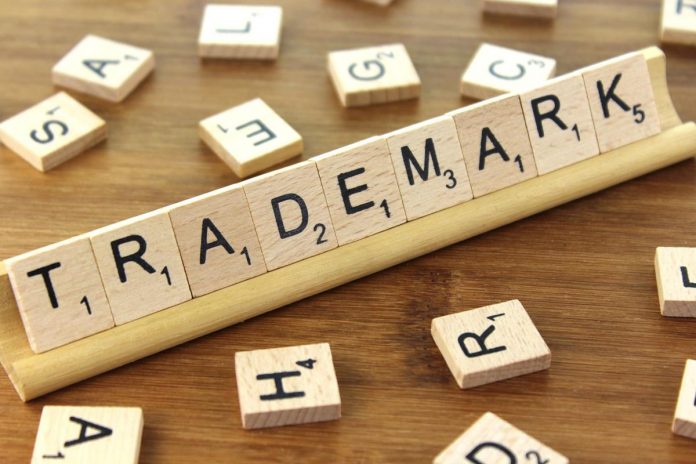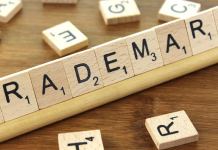This article is written by Ashmitha S, Trademark Associate, Bengaluru.
This article has been published by Sneha Mahawar.
Table of Contents
Introduction
The world is filled with many inventions, discoveries, science, technology, culture and arts. The human mind is capable of making wonderful things happen. The beautiful nature has bestowed its creations with a uniqueness of its own. This uniqueness is different from one person to another. Believing the creativity of each individual is of great identity, such creativity has to be protected and here arise the Intellectual Property Rights. Wherein, the creativity is protected and harnessed. In this regard, my article dwells around one of the unique topics from trademark viz. names as trademarks under the heading “Unanswered Trademark Law”.
Briefly, Intellectual Properties are the intangible assets that each individual is blessed in disguised. Wherein, the intellect of individuals is protected from not being taken away or stolen. IP can be mainly divided into Patents – wherein one can protect the scientific inventions; Trademark – wherein one can protect brand names, logo, and tag lines in a graphical representation; Copyright – wherein literary, artistic, music, cinematography, sound recording can be protected; Designs- wherein 2D and 3D works can be protected. Other IPs such as Traditional knowledge, Plant varieties, Geographical Indication, etc.
This article covers various definitions in this realm and attempts at answering the question that whether names be trademarked. It also aims at bringing forth a few classifications of names that might be eligible for trademark protection, along with case laws.
Definitions as per Trademark Act, 1999
Before heading towards the core point of discussion, the basic definition as to what is “mark”, “name” and “trademark” needs to be understood.
- Section 2(m)- “mark”: Includes a device, brand, heading, label, ticket, name, signature, word, letter, numeral, shape of goods, packaging or combination of colours or any combination thereof.
- Section 2 (o) – “name”: includes any abbreviation of a name.
- Section 2 (zb) – “trademark”: means a mark capable of being represented graphically and which is capable of distinguishing the goods or services of one person from those of others and may include the shape of goods, their packaging and combination of colours.
Can names be trademarked
‘Name’ can be trademarked as per Section 2 (m) of the Trademark Act which says a mark can be a name, ticket, logo, etc.
However, the grant of trademarks to ‘names’ is different. In this regard, the ‘name’ can be classified into:
- Living person’s name/surname
- Celebrities’ name
- Dead person’s name/legacy
- God’s name
Living person’s name/Surname
Generally obtaining a trademark on “names or surnames” is a herculean task. For the reason that they are not distinctive from the rest of the marks/names or they are devoid of uniqueness. In order to obtain trademark registration, the mark/name must have obtained secondary meaning and established distinctiveness.
For example – Bajaj, Ford, Ralph Lauren, Suzuki, Goenka, Sony, Ranbaxy (derived from Ranbir Singh and Gurbax Singh), Dabur (derived from Dr Burman), etc. are some of the names which have obtained a trademark registration.
On the other hand, there are names Such as – Tata, Honda, Dr Reddy’s Laboratory, Philips, Mahindra and Mahindra that have obtained well know marks status under the trademarks Act.
Case laws
- Mahindra and Mahindra v Mahendra and Mahendra 2003 (26) PTC 434 (Guj) – An infringement suit filed for using a deceptively similar mark.
The Court decided and observed – though the word “Mahindra” is a common surname in India, the plaintiff had acquired distinctiveness and secondary meaning of the word “Mahindra” with its continuous use and if used by the defendant even in regard to a different field of activity, it would surely result in creating confusion in the public mind that it belongs to the plaintiff.
- Dr Reddy Laboratories v Reddy Pharmaceuticals 2004 (29) PTC 434 (Del) – The court observed that the drugs and pharmaceutical preparations manufactured by the plaintiff have earned enormous trade reputation and goodwill and the plaintiff is distinctively identified and associated with the trademark/name “Dr Reddy” as well as their logo. The use of Trade Mark/name “Reddy” by the defendant on its pharmaceutical preparations is neither concurrent nor honest.
Celebrities’ names
Celebrities are people having goodwill, name fame and reputation in the society. Thus, Celebrities can reach the public in better ways.
Some of the examples of misuse of celebrities’ names are:
Actress Kajol Twitter Controversy of 2010
There were derogatory remarks twitted against one of the political parties. Such remark was made in the name of “kajolnysa” who was believed to be Actress Kajol. Many news channels reported depicting that tweet was posted by the actress herself due to the name of her Twitter account. Thereafter, Actress Kajol gave her justification in the News and media that it was not her. But someone misused her name.
Sanjeev Kapoor’s story
Sanjeev Kapoor – is a famous chef. He had authored a book called Khazana of Indian Recipes. However, once he found that a boy was selling a book Khazana of Chinese Recipes with Kapoor’s picture on the cover. The book cover and his picture were the same as that of his original book. His face was used to sell something that was not his creation.
Later, these celebrities applied for trademarks of their names.
Unauthorized use of a celebrity’s name or image to a product attracts – passing off, unfair competition, and misrepresentation and can cause damage to their reputation, breach of confidence or a violation of privacy. Such kind of damages attracts monetary compensation. Sometimes, mental agony could be suffered, which cannot be compensated through money. In such a case, there can be imprisonment imposed.
If a celebrity is desirous of registering his/her name it should be with respect to a particular class of goods or services. So that it restrains others from misuse such as the use for commercial purposes, including films, TV, and advertisements without their consent.
Celebrities like, Shah Rukh Khan, Ajay Devgan, Kajol, Sunny Leone etc. have registered their names as trademarks.
Dead person’s name/legacy
Wherein, one wishes to obtain trademark registration on a dead person’s name, in such case, Section 14 read with Rule 29 of the Trademark Act and Rules provides for obtaining permission/consent in writing from such dead person’s legal representatives that the name of a dead person can be used on goods or services. This consent is required by the Trademark Registry when the death took place within 20 years prior to the date of Application. Fail in furnishing the written consent, the Trademark Registrar may refuse to grant the trademark.
If in case more than 20 years of the death of a person whose name is applied for a trademark, then the registry may not require such consent for trademark filing.
God’s name
In the case of Trademark Application filed in the name of God, deities, religious texts, etc., there are differences of opinion raised. Some of the case laws are:
- The Supreme Court in the case, LAL BABU PRIYADARSHI Vs. AMRITPAL SINGH – Civil Appeal No. 2138 of 2006 (2015 – judgment)
The present case was an appeal from IPAB, claiming trademark rights over “Ramayan” to sell incense sticks and perfumes.
It was Observed and held by the Supreme Court- no individual can be given an exclusive right over gods and holy books, especially to make a profit. “…. the photographs of Lord Rama, Sita and Lakshman are also shown on the label, which is a clear indication that he is taking advantage of gods and goddesses, which is otherwise not permitted,”
However, the court specified – if there was a prefix or a suffix to the word Ramayan which was of the same “length of the word Ramayan then Ramayan may lose its significance as a religious book and it may be considered for registration as a trademark”.
- The Calcutta High Court in the case, Shyam Steel Industries Limited v. Shyam SEL and Power Limited and another [APO No. 91 of 2019 With CS 63 of 2019], (order-2019).
Is an injunction suit. The facts- The Appellant and Respondents are all involved in the business of manufacturing TMT bars under different variants of the trademark ‘SHYAM’. The Appellant had filed the instant suit seeking an injunction against the Respondents to restrain them from using the mark ‘SHYAM’ in respect of their goods and services.
The Court observed – “there is no authority or at least no authority was shown to us, which laid down that God’s name was not registrable as a trademark.”
Held – “this court cannot say as an infallible principle of law that registration of the word ‘Shyam’ was invalid and its registration should be cancelled. The respondent has to prove, by leading cogent evidence, before the Board, that indeed the name ‘Shyam’ refers to God only, is not distinctive of the appellant, and is generic and common. The respondent has not been able to establish this, even prima facie.” Accordingly, the Court granted an interim injunction against the Respondents.
Conclusion
The above case laws have set forth a divergent opinion. The name trademark can be registered under Trademark Act. However, while filing a trademark application in the category of ‘NAME’, one has to make sure that their mark/name has established distinctiveness or has obtained secondary meaning. Additionally, in the case of celebrities’ names, mere names cannot be applied for trademark registration. But their names should be applied under the classification of goods and services. Also, it is pertinent to comply with section 9(2) of the Trademark Act, 1999 in order to pass through the trademark registration procedure and obtain the registration. Thus, the ‘name’ plays important role in trademark registration.
References
- https://www.algindia.com/no-absolute-bar-on-registration-of-a-gods-name-as-a-trademark/
- https://spicyip.com/2015/12/supreme-court-says-no-trademark-registration-for-names-of-holy-books.html
- https://taxguru.in/corporate-law/celebrity-trademarks-india.html#:~:text=To%20prevent%20misuse%20of%20celebrity,registered%20their%20names%20as%20trademarks.
- https://www.mondaq.com/india/trademark/410700/what39s-in-a-name39-registration-of-surnames-as-trademark
Students of Lawsikho courses regularly produce writing assignments and work on practical exercises as a part of their coursework and develop themselves in real-life practical skills.
LawSikho has created a telegram group for exchanging legal knowledge, referrals, and various opportunities. You can click on this link and join:
Follow us on Instagram and subscribe to our YouTube channel for more amazing legal content.
 Serato DJ Crack 2025Serato DJ PRO Crack
Serato DJ Crack 2025Serato DJ PRO Crack











 Allow notifications
Allow notifications


